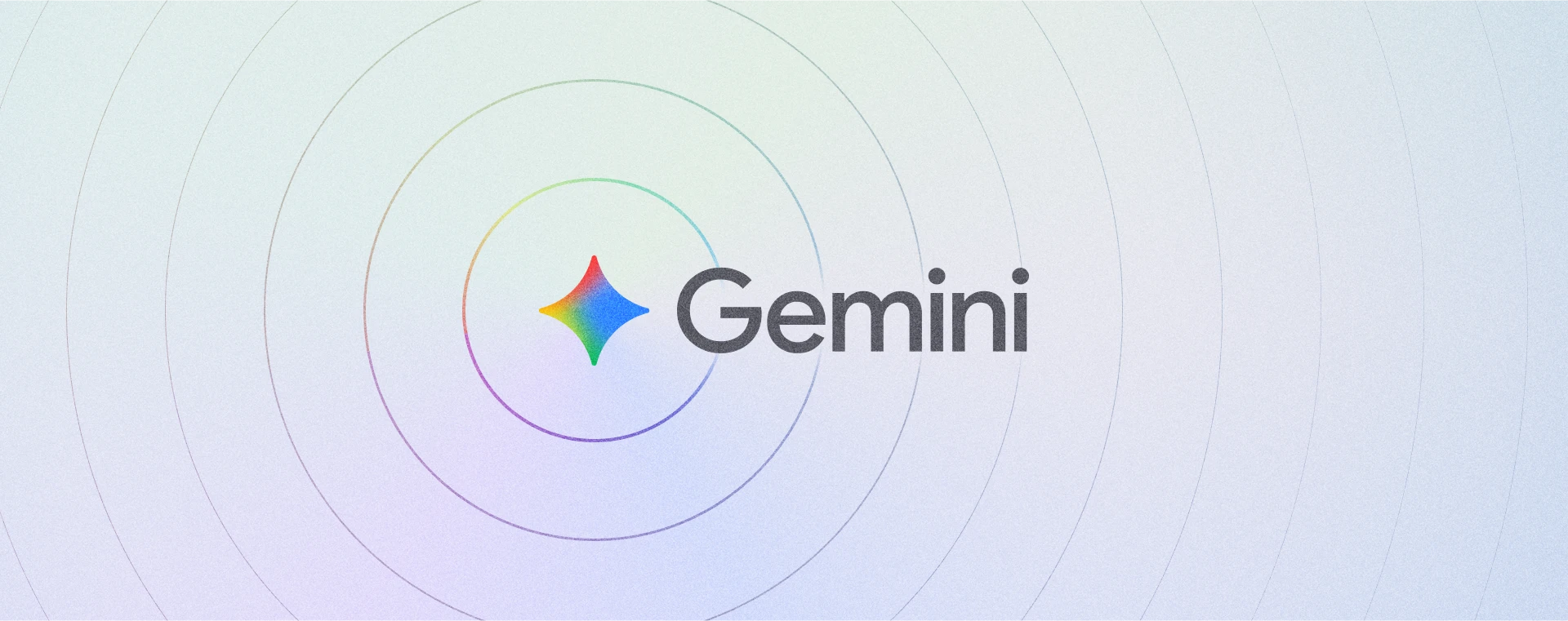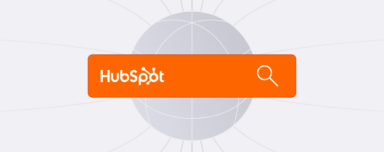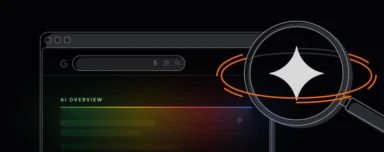SEO for Gemini: Proven Strategies to Boost Your Rankings
The search landscape is shifting, with a growing network of AI search tools taking traffic from organic search results. Google Gemini is one of the leading LLM options for AI Search, revolutionizing how content is discovered and ranked. If you want to stay ahead of the curve and your competitors, this guide will help you succeed with SEO for Gemini.
Key Takeaways
- Gemini SEO prioritizes getting your content cited through clear attribution, factual consistency, and conversational language that AI systems can easily parse and reference.
- Lead every piece of content with a complete, concise answer in the first 100-150 words that directly addresses the user’s question, then expand with supporting context, firsthand expertise, and specific data that demonstrates E-E-A-T.
- Zero-click results don’t represent lost traffic but rather a shift in how brand authority is built, as users who get quick answers from AI Overviews were never going to click through anyway.
- Prepare for the evolution of search by maintaining strong technical SEO fundamentals while simultaneously implementing GEO strategies that optimize for both traditional rankings and AI citations.
Introduction to SEO and Gemini AI
Search Engine Optimization (SEO) is the backbone of digital marketing, helping websites stand out in the crowded world of search engines, especially Google Search. Traditionally, SEO strategies focused on improving rankings in Google’s search results by understanding user intent, optimizing for target keywords, and creating high-quality content. But with the arrival of AI tools like Gemini, the rules have changed.
Gemini is Google’s advanced large language model, designed to deliver direct answers to user queries, often bypassing the traditional list of blue links. This shift means site owners must rethink their approach: it’s no longer just about ranking, but about being the source that Gemini cites in its responses. To achieve AI SEO success in this new landscape, businesses need to align their content with search intent, anticipate the questions users are asking, and provide clear, authoritative answers. By leveraging Gemini though, brands can boost their website traffic, enhance brand visibility, and stay ahead in the evolving world of digital marketing.
What You Need to Know First
Gemini had more than 450 million active users in July 2025. With Google investing $75 billion in AI, this isn’t going away. The platform pulls from the same ranking systems you already know – RankBrain, BERT, PageRank – but how it surfaces content works differently.
Traditional search gives you traditional blue links. Gemini gives users one answer. Your content either gets cited or it doesn’t exist.
The Traffic Problem Nobody Talks About
Sites ranking #1 organically are watching their clicks disappear. When Gemini answers questions directly in Google AI Overviews, users don’t need to click through. These zero-click results are now the norm for informational queries.
A search for “how to improve sleep” returns a complete answer with tips, sources, and recommendations. Users get what they need without visiting a single website. Publishers creating informational content are feeling this the hardest, as Google’s AI overviews have changed the way users interact with search results.
At the core of the issue lies the challenge of citation visibility. If your content gets referenced in that AI Overview, you’re building authority even without the click. You should also check whether your site appears in AI Overviews as a measure of success. The question is how to get there.
GEO vs SEO: You Need Both Now
Generative Engine Optimization (GEO) is different from traditional SEO. SEO focuses on ranking pages. GEO focuses on getting content interpreted and cited by large language models. Increasingly, generative engines, AI-driven platforms like Gemini, are producing direct, AI-generated responses instead of traditional search results, requiring a different optimization approach.
Think of it this way: SEO optimizes for algorithms that rank webpages. GEO optimizes for how AI systems parse, understand, and attribute information. You need clear entity linking, factual consistency, authoritative language, and proper attribution that AI can identify.
The shift matters because search behavior is changing. People aren’t typing “best summer destinations” anymore. They’re asking “what are some good destinations for a family summer vacation with kids under 10?”
Hub and Spoke Keyword Strategy
Answer engines like Gemini thrive on conversational queries. Your keyword research needs to reflect how people actually talk. Targeting long tail keywords is essential for matching the natural, conversational queries Gemini prefers, as these specific phrases align closely with user intent.
Start with a hub phrase, then build spoke variations:
Hub: What are some good destinations for a summer vacation
Spokes:
- What are some good destinations for a family summer vacation
- What are some good international destinations for a summer vacation
- What are some good destinations for a Memorial Day weekend getaway
Each spoke represents a different intent. Families need kid-friendly options. International travelers want passport requirements. Weekend getaways need proximity. Create content that addresses these specific scenarios, and you’re more likely to match Gemini’s interpretation of user intent.
Content That Gets Cited
Gemini doesn’t cite fluff. It cites optimized content that demonstrates firsthand expertise and brings something new to the conversation.
Not “optimized” content in the sense of keyword stuffing, but content that’s easy to parse, understand, and extract answers from. To rank well, it’s important to optimize content specifically for Gemini’s extraction methods, ensuring clarity and directness.
Here’s what that looks like:
Use questions as headings. Instead of “Summer Destination Options,” write “What are the best summer destinations for families?” Gemini can pull this directly.
Get specific with data. Don’t say “Paris is expensive.” Say “A 5-day trip to Paris averages $3,200 for two people, including hotels and meals.” Gemini values specificity.
Add firsthand experience. “My family visited Costa Rica last summer. The zip-lining in Monteverde kept my kids entertained for hours, and the local guides made it feel safe even for beginners.” This is the kind of detail AI can’t generate on its own.
When structuring your article, focus on optimizing content for both readability and AI extraction to improve your chances of being cited.
Shift from Long-Form to Concise Answers
Traditional SEO pushed 2,000+ word articles. Gemini prefers concise, direct answers that still provide depth. Gemini’s AI responses are typically short and to the point, so your content should be structured to match this format for better visibility in search results.
Look at how Gemini responds. The initial answer is brief, maybe 100-150 words. Then it offers to go deeper. Your content should mirror this structure. Lead with a clear, complete answer. Then expand with context, examples, and related information.
FAQ sections work particularly well here. Each question gets a focused answer that Gemini can extract as a standalone snippet. Build out your FAQ section with real questions people ask, not generic SEO filler.
Featured Snippets and People Also Ask
These Google features already exist, and they’re your direct path into Gemini’s responses. Content that appears in Featured Snippets has a higher chance of being cited in AI Overviews. Featured Snippets and People Also Ask are often used by AI chatbots like Gemini to generate their answers.
Target these intentionally:
For Featured Snippets
Structure answers between 40-60 words. Use bullet points or numbered lists. Answer the question completely but concisely.
For People Also Ask
Identify related questions users care about. These often appear as follow-up queries in Gemini. Creating content that addresses these PAA questions increases your visibility across multiple entry points.
Schema Markup That Actually Works
Schema helps Gemini understand your content’s context. But most sites either skip it or implement it poorly.
Recipe schema is a perfect example. When Gemini answers “how to make carrot cake,” it pulls prep time, cook time, ingredients, and nutritional info, all from schema markup. Sites without schema don’t get that same visibility.
Other useful schema types:
- FAQ schema for question-and-answer content
- HowTo schema for step-by-step guides
- Product schema for e-commerce content
- Review schema for testimonials and ratings
Use Google’s Structured Data Markup Helper to generate schema. It’s free and catches most errors. Gemini and other AI tools can also help generate schema markup for your content, making it easier to implement structured data for better SEO and rich snippets.
Technical SEO Still Matters
Page speed, mobile optimization, HTTPS, crawlability, all of this still impacts how Gemini surfaces your content. AI doesn’t change the fundamentals. AI-powered systems like Gemini require technically sound sites to accurately evaluate and surface content, making technical SEO more important than ever.
Google uses mobile-first indexing. If your site is slow or broken on mobile, Gemini won’t cite it no matter how good your content is. Run a speed test. Fix your Core Web Vitals. Make sure Google can actually crawl your important pages.
Your sitemap organizes content for crawlers. Your robots.txt file tells them what to ignore. Both files matter for traditional search and AI-generated responses.
Human Expertise as Your Competitive Edge
AI can generate content and help generate ideas for new articles, questions, and personalized advice. However, it can’t generate unique insights from experience. This is where you pull ahead.
Bring in expert interviews
Quote industry professionals. Share perspectives that don’t exist elsewhere. Gemini cites sources that demonstrate authority, and expert interviews signal that better than generic content ever will.
Use case studies with real data
Show actual results. “We increased organic traffic by 47% using these tactics” is infinitely more valuable than “these tactics can improve traffic.”
Develop a distinct voice
When every other result sounds like it came from the same AI prompt, personality stands out. Write how you talk. Let your brand’s character come through.
Multimedia Content That Engages
Text-only content is easier for AI to replicate. Images, videos, and infographics require effort that AI tools can’t match yet. Make your multimedia content visually appealing to attract and retain user attention.
Use visuals to explain complex concepts. Add descriptive alt tags that include relevant keywords (but write them naturally). Visual search is growing, and optimized images can drive traffic through that channel too.
User-generated content adds authenticity. Customer testimonials, reviews, photos, etc. – these elements build trust and give your content depth that pure AI generation lacks.
Building Online Citations
Citations matter more than ever. Beyond simple backlinks, these include mentions, listings, profiles, and reviews across the web.
Local listings like Google Business Profile verify your business. Social media profiles show you’re active and engaged. Unlinked mentions still contribute to your brand’s authority in Gemini’s training data.
Overall, focus on creating content worth citing. Publish original research. Share unique insights. Build tools or resources that others want to reference. The more you appear as a trusted source across the web, the more likely Gemini will recognize and cite you. Effective content marketing is essential for building the authority and citations that Gemini values, helping to boost your visibility and credibility.

Content Refresh Strategy
Gemini prioritizes current, updated information. A guide published in 2022 and never touched since is less likely to get cited than one refreshed in 2025. Reviewing and refining your existing content by improving clarity, conciseness, or comprehensiveness can significantly improve its chances of being cited by Gemini.
But refreshing doesn’t mean changing the year in your title. Research what’s changed. Update examples. Add new data. For a summer travel guide, consider major events. Did Paris host the Olympics? Did visa requirements change? Did new hotels open?
Substantial updates signal to both Google and Gemini that your content remains relevant. Set a calendar to review high-value content quarterly.
Natural Language Processing Integration
As AI improves at understanding conversational queries, your content should reflect how people actually speak. This is especially true for voice search, which aligns closely with how users interact with Gemini. Writing in natural language also helps Gemini and other AI systems understand search intent more accurately, ensuring your content matches what users are really looking for.
Write in natural language. Use contractions. Ask questions. Answer them conversationally. “You’re probably wondering how long this takes” sounds human. “One may inquire about the time investment required” sounds like AI wrote it.
NLP isn’t a separate technique either; it’s simply a mindset. Write for people first. AI systems trained on human language will understand it better than content written to game algorithms.
Common SEO Mistakes to Avoid
Optimizing for Gemini AI requires a fresh perspective and avoiding some all-too-common SEO pitfalls. One major mistake is failing to understand user intent and the evolving search behavior that comes with AI-driven search engines. Without thorough keyword research that targets both primary and related keywords, your content may miss the mark entirely.
Another frequent error is neglecting technical SEO. Overlooking elements like schema markup, meta descriptions, and internal linking can make it harder for Gemini AI to interpret and cite your content. Relying solely on traditional SEO tools, without incorporating AI-powered solutions, can also leave you behind as search engines become more sophisticated.
To boost your SEO performance, focus on understanding intent, use comprehensive keyword research, and ensure your technical SEO is up to date. Embrace AI-powered tools and strategies to stay competitive, and always keep your site’s structure and content optimized for both users and AI models. By sidestepping these common mistakes, site owners can improve their visibility, authority, and traffic in the age of Gemini AI.
What’s Actually Working Right Now
Based on analysis of sites getting consistent Gemini citations, here’s what separates them:
- They answer questions completely in the first 100-150 words, then they expand. Gemini can extract that initial answer as a complete response while still linking to the fuller context.
- They use conversational headings that mirror actual queries. Not “Destination Options” but “What are good summer destinations for families?”
- They demonstrate E-E-A-T (Experience, Expertise, Authoritativeness, Trustworthiness) with specifics. Certifications, awards, partnerships, firsthand stories, and verifiable data.
- They refresh content based on what’s actually new, not cosmetic updates. Substantial changes that improve the content’s value.
Effective content creation practices, such as structuring information clearly in tables, lists, and hierarchies, increase the likelihood of being cited by Gemini. But they don’t sacrifice readability for structure.
Track Your Gemini Performance
Tracking Gemini rankings isn’t like tracking Google rankings. There’s no Search Console for answer engines yet.
The manual approach: Search your target queries in Gemini. Document which brands get cited and where you appear. Track this in a spreadsheet over time. Using Google Sheets, you can organize and track your Gemini citation data efficiently. You can also leverage Gemini to analyze trends in your data and improve your tracking process.
The platform approach: Use one of many analytics to track rankings across Gemini, AI Overviews, Perplexity, ChatGPT, and other answer engines. There is no decisive tool that has the best answers right now, but there are plenty of great options to research.
Also, you can monitor competitors. See which brands Gemini cites for queries in your space. Analyze what they’re doing differently. Adapt your strategy based on what’s working. Additionally, monitor your top keywords to see which ones are cited most often in Gemini.
The Reality of Zero-Click Search
Some SEOs panic about zero-click results. Others see an opportunity. The rise of zero-click searches, where users get their answers directly in the search results without visiting a website, is driving major changes in SEO strategy.
If Gemini answers the question completely, you weren’t getting that click anyway. Users looking for quick answers never clicked through. They checked the Featured Snippet and left.
What changed is the format. Instead of losing clicks to Featured Snippets, you’re losing them to AI Overviews. The solution is the same: get cited in the answer.
When Gemini cites your brand, you’re building awareness with users who might not have clicked regardless. You’re establishing authority. You’re creating touchpoints that lead to future conversions.
Not every query needs to drive immediate traffic. Some build brand recognition. Some establish expertise. Some create familiarity that pays off later when users do convert.
Where SEO Is Heading
The fundamentals haven’t changed. You still need technically sound sites. You still need quality content. You still need solid backlink profiles.
What’s different is the distribution of how users find that content. Traditional search still exists, and Google Search remains the primary platform for discovering information, even as Gemini adds new layers to the search ecosystem. But now you’re also competing for visibility in AI Overviews, answer engines, and conversational AI platforms.
The sites that thrive will be the ones that optimize for both. Strong SEO gives you the foundation. A sound AI SEO strategy gets you cited by AI. Together, they create visibility across the entire search ecosystem.
Gemini isn’t replacing Google. It’s adding another layer. Users will still click through for complex purchases, detailed research, and tasks requiring human interaction. But for quick answers, definitions, and basic information, AI is now the first stop.
Frequently Asked Questions
Is Gemini good for SEO?
Gemini is valuable for SEO because it analyzes search behavior and provides insights that help optimize keyword research and content strategy. Its real-time, multi-modal intelligence makes it particularly useful for understanding how users phrase queries and what answers they expect.
How to optimize for Gemini?
Optimize for Gemini by creating concise, readable content that answers specific questions in the first 100-150 words, then expands with supporting details. Use conversational headings that mirror actual user queries, implement schema markup, and demonstrate firsthand expertise with specific data and examples.
How to rank on Google Gemini?
Rank on Google Gemini by practicing ongoing SEO fundamentals while targeting conversational phrases and improving content readability with clear headings and structured information. Get cited online through local listings, backlinks, and reviews, and refresh your content regularly with substantial updates that add genuine value.
Can ChatGPT do SEO?
ChatGPT can assist with SEO tasks like generating title tags, meta descriptions, content briefs, and keyword variations, but it cannot replace human strategy and expertise. It works best as a tool for ideation and optimization when combined with actual SEO knowledge, competitive analysis, and an understanding of your specific audience and goals.






